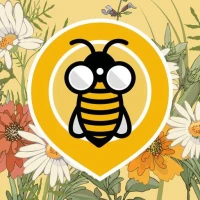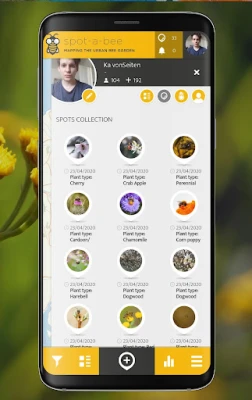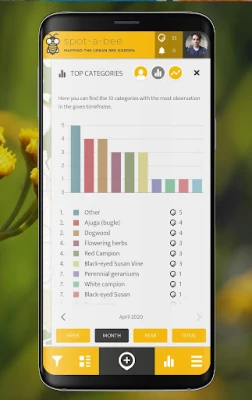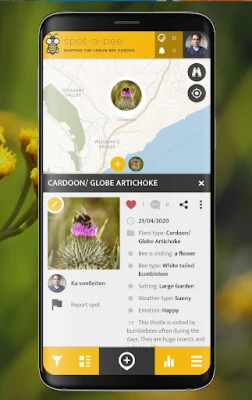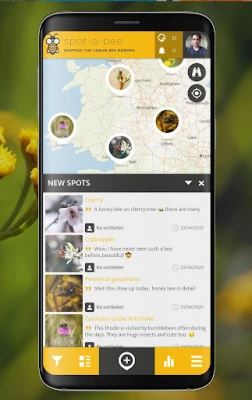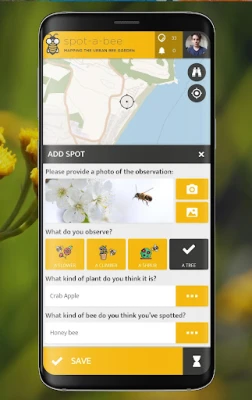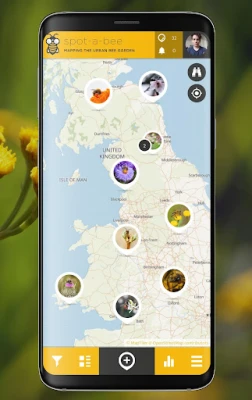
Latest Version
3.5.3
November 09, 2024
SPOTTERON
Education
Android
0
Free
com.spotteron.spotabee
Report a Problem
More About Spot-a-Bee | SPOTTERON
The Essential Role of Bees in Our Ecosystem: How You Can Help
Bees are vital to the health of our planet, playing a crucial role in pollination and the overall balance of our ecosystems. However, over the past six decades, we have witnessed a dramatic decline in bee populations, primarily due to habitat loss, intensive farming practices, and environmental changes. This article explores the importance of bees, the challenges they face, and how urban areas can become sanctuaries for these essential pollinators.
The Decline of Bee Populations
In the last 60 years, the natural habitats that support bee populations have diminished significantly. In the UK alone, over 90% of wildflower meadows have disappeared, largely due to the rise of intensive farming methods that favor mono-cultures. These practices not only reduce biodiversity but also eliminate the diverse range of plants that bees rely on for food.
Additionally, the use of pesticides has further exacerbated the decline in bee numbers. Chemicals designed to protect crops can be harmful to bees, leading to weakened colonies and reduced reproduction rates. Climate change also poses a significant threat, altering the availability of flowering plants and disrupting the delicate timing of pollination. Furthermore, pests like the Varroa mite have devastated bee populations, making it increasingly difficult for these insects to thrive.
Urban Areas: A Potential Haven for Bees
While rural landscapes face significant challenges, urban areas present a unique opportunity for bees. Towns, parks, and suburban gardens often feature a rich diversity of plants and flowers from around the globe. These green spaces can serve as vital oases for bees, providing them with the resources they need to survive and flourish.
By cultivating bee-friendly plants in our gardens and public spaces, we can create a supportive environment for these pollinators. Native wildflowers, herbs, and flowering shrubs can attract bees and other beneficial insects, enhancing biodiversity and promoting a healthier ecosystem.
Get Involved: Help Us Monitor Bee Populations
To better understand the role of urban areas in supporting bee populations, we invite you to participate in a citizen science initiative. By observing and documenting bee-friendly plants in your local environment, you can contribute valuable data that will help researchers assess the health of bee populations across the United Kingdom.
The next time you find yourself in your garden or taking a stroll with your dog, keep an eye out for bees. If you spot any, take a moment to snap a picture of the plants they are visiting. You can easily share your observations through the Spot-a-Bee Citizen Science app, which operates on the SPOTTERON platform at www.spotteron.net.
Why Your Participation Matters
Your involvement in this initiative is crucial for several reasons. First, it raises awareness about the importance of bees and the challenges they face. By documenting bee activity, you help create a clearer picture of how urban environments can support these vital pollinators.
Second, citizen science fosters community engagement. When individuals come together to observe and report on local wildlife, it strengthens community ties and encourages a collective effort to protect our environment. This initiative not only benefits bees but also promotes a greater appreciation for nature and biodiversity.
Conclusion: A Call to Action
Bees are indispensable to our ecosystem, and their decline poses a significant threat to global food security and biodiversity. While rural areas face numerous challenges, urban environments can become sanctuaries for these essential pollinators. By participating in the Spot-a-Bee initiative, you can play a vital role in monitoring and supporting bee populations in your community.
Join us in this important effort. Together, we can create a brighter future for bees and, in turn, for our planet. Start observing, documenting, and sharing your findings today!
Rate the App
User Reviews
Popular Apps










Editor's Choice










